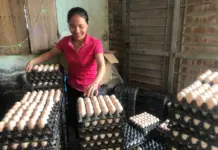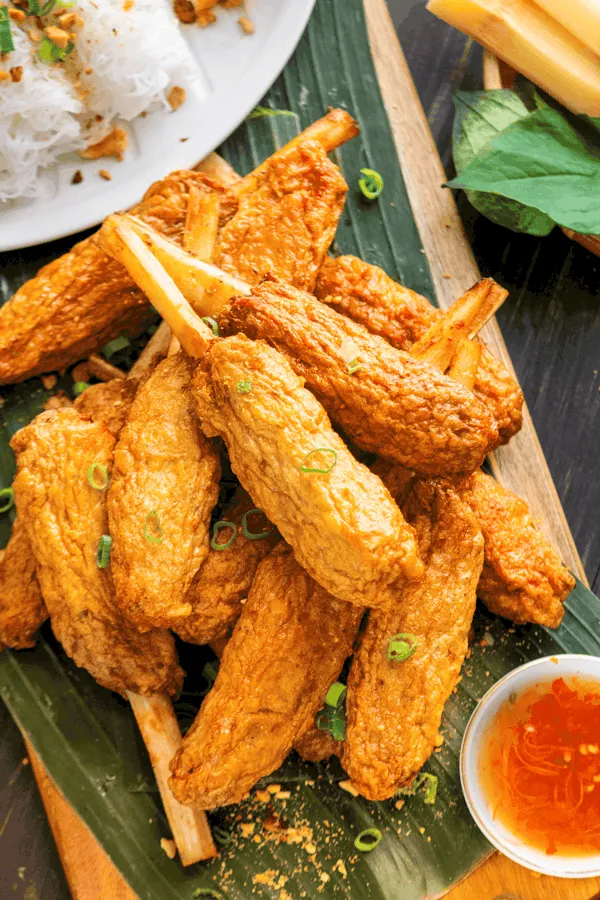 |
Chạo tôm (grilled shrimp paste wrapped around sugarcane) used to be served to royalty in central Vietnam.
Grilled shrimp paste wrapped around sugarcane is a beloved Central Vietnamese dish due to its combination of succulent shellfish and a sweet tang.
The clip helps you to experience yourself
A Vietnamese feast for our family is never complete without a plate of Chao Tom fresh from the kitchen. We almost always buy the ready-made frozen ones from our local Asian supermarket just for convenience, but I’ll let you in on a little secret:
Every bite has pockets of insanely aromatic flavor that you’ll never get from store bought frozen ones.
And when the aromatics are being fried until golden…if you could just smell it wafting through your kitchen, you’d know just how much depth the charred bits add.
Store-bought frozen sugar cane shrimp can be dry, even after frying.
But these ones aren’t. They’re super succulent, right down to their juicy sugar cane core.
WHAT IS SUGAR CANE SHRIMP?
Affectionately known as Chạo Tôm to Vietnamese people, sugar cane shrimp is a fragrant appetiser that originated from central Vietnam in the city of Huế.
The paste is characterised by its springy texture and mild seafood flavor which is then wrapped around a sweet sugar cane stick before being steamed and fried.
It’s often served at parties as a main to be wrapped with herbs, with grilled meat and noodle platters or Bánh Canh Cua, the thicker seafood variant of Bánh Canh Gà.
The best part is that after the shrimp paste is eaten, you can chew on the sugar cane for its juices!
WHY THIS RECIPE WORKS
- Aromatics are pan fried and blended into the shrimp paste for the most incredible flavor kick.
- Egg yolks are brushed onto the steamed sticks for a deep golden color when fried.
- Using giò sống (pork paste) gives it a wonderfully springy texture and adds extra fragrance!
WHAT YOU’LL NEED
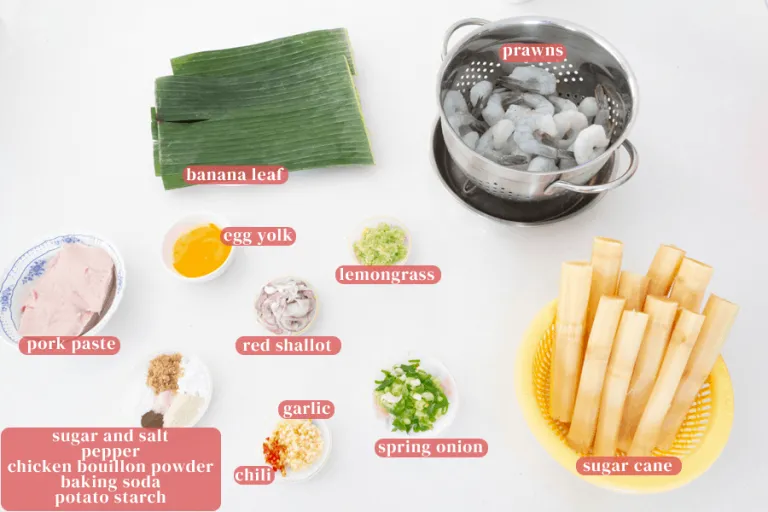 |
ABOUT THE INGREDIENTS
For extra flavor, we use pre-prepared pork paste (giò sống) from the frozen section of our local Asian grocery store. If that’s not available, substitute it with shrimp instead.
The banana leaf can also be found in the fridge at your Asian supermarket.
Sugarcane can be bought fresh or in tins with syrup. They will be in aisles with other tinned products from Asian grocers.
HOW TO MAKE THIS RECIPE
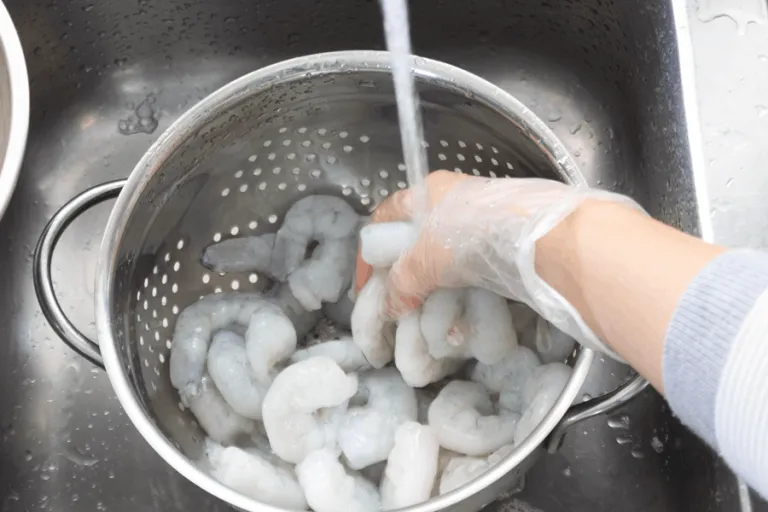 |
Wash the frozen prawns in cool water. When thawed, drain them in a colander.
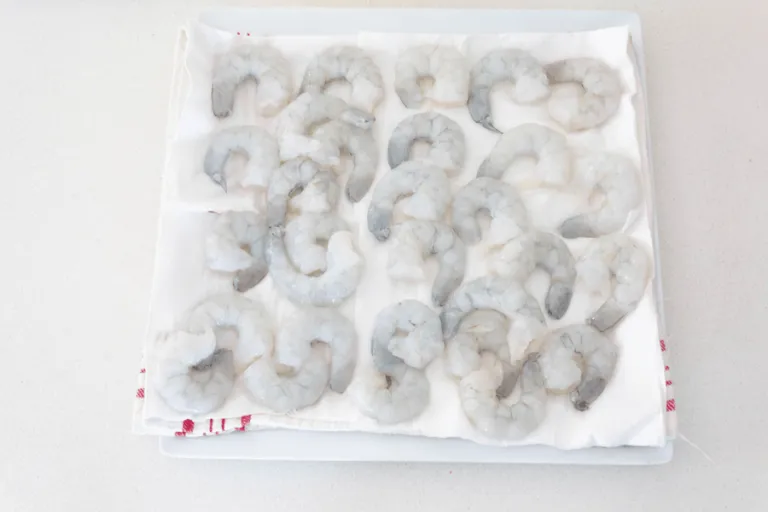 |
Place the prawns on a cloth to dry and pat the moisture away using paper towels. You want each one to be free from any liquid.
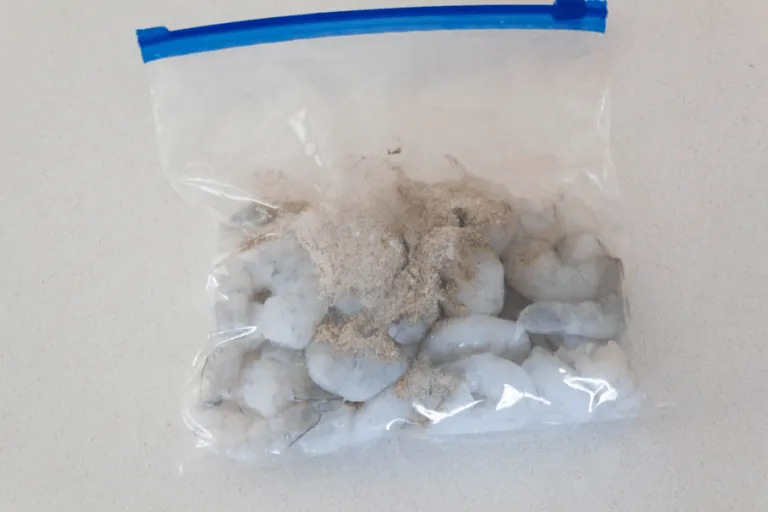 |
Put the shrimp in a ziplock bag along with the pepper, chicken bouillon powder, fish sauce, salt and sugar.
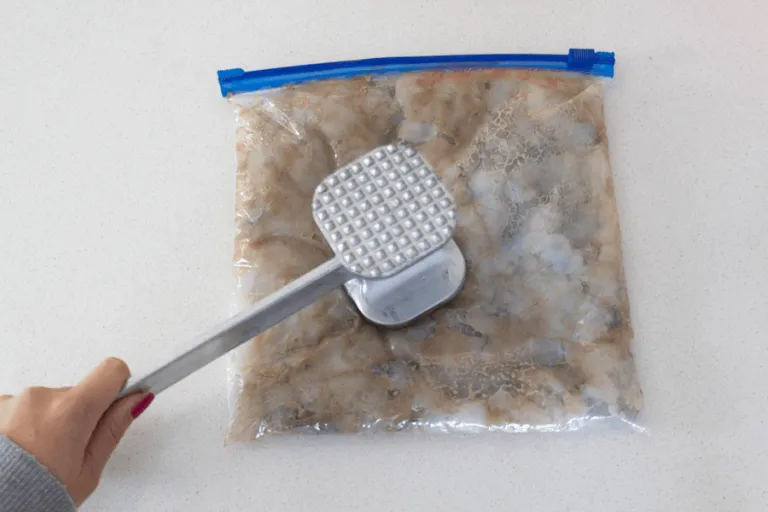 |
Use a meat mallet (or any tool you have on hand) to pound the shrimp for 3 minutes, then set aside.
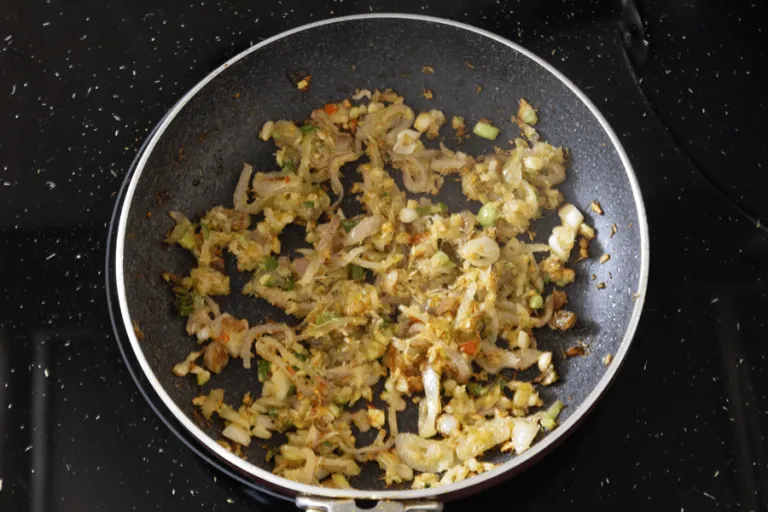 |
Heat up a pan with the oil and brown the lemongrass, chili, spring onion, purple shallots and garlic.
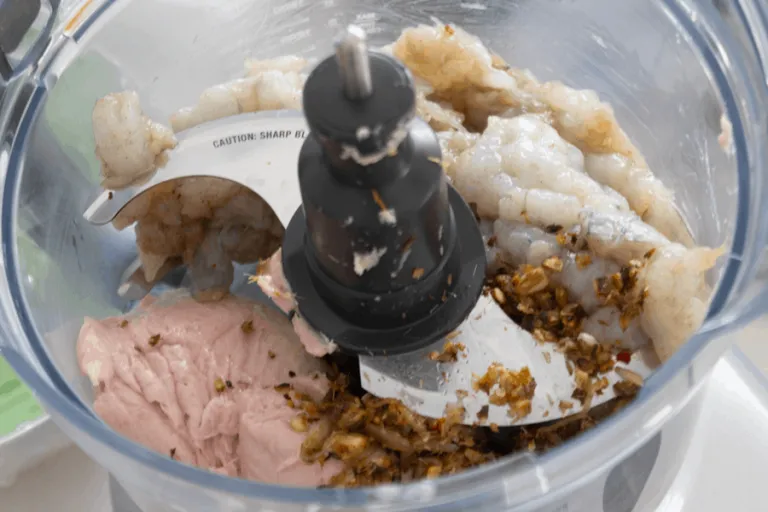 |
In a food processor, add the fried aromatics, shrimp and pork paste along with the baking soda and potato starch.
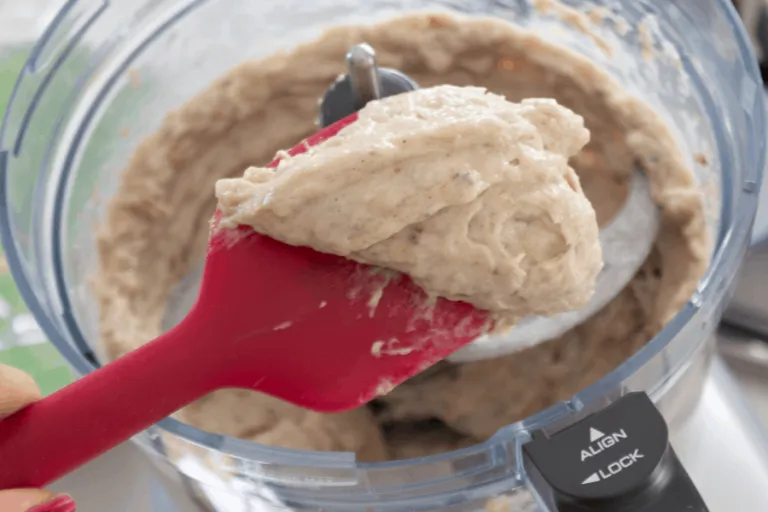 |
Blitz the contents until it forms a smooth paste.
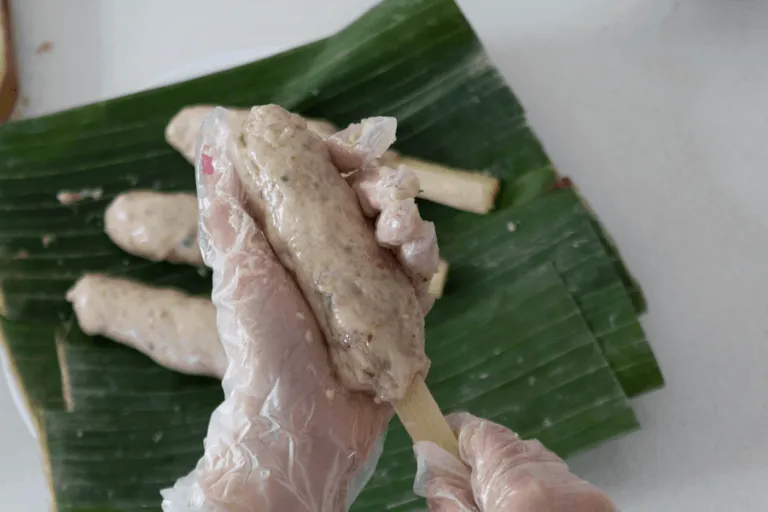 |
Line a flat dish with banana leaf and wrap roughly 1/2 US cup paste around the sugar cane.
Tip: Wearing gloves and coating it in a light layer of oil will stop the mixture from sticking. To make the surface smooth, roll the sugar cane in the palm of your hand.
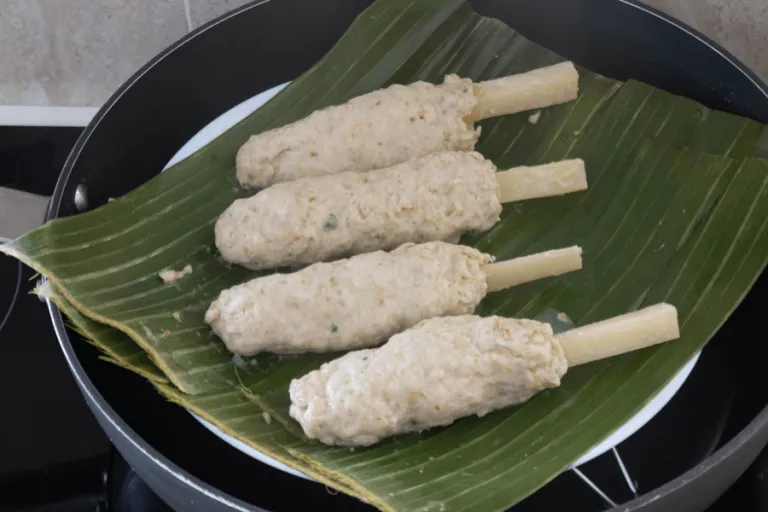 |
Set up a steamer on high heat and steam for 5 minutes or until cooked.
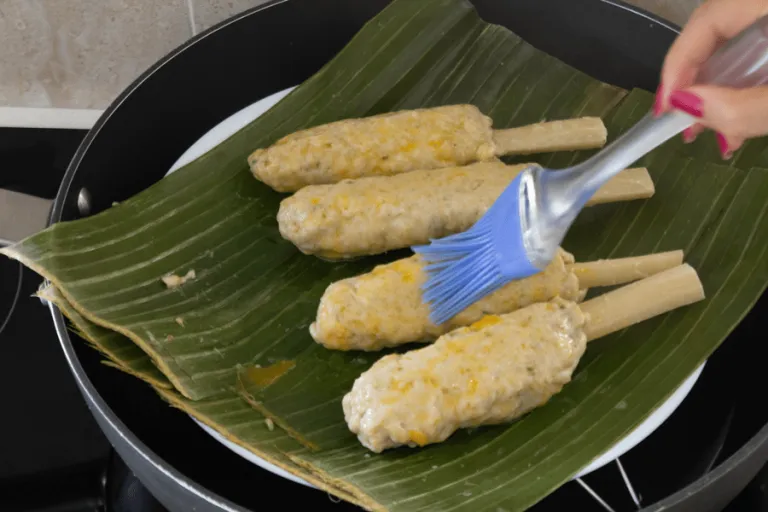 |
Turn off the heat then lightly brush egg yolks on the steamed chao tom and let it rest in the steamer for 1 minute. This step will allow the yolk to form a glaze over the meat without overcooking.
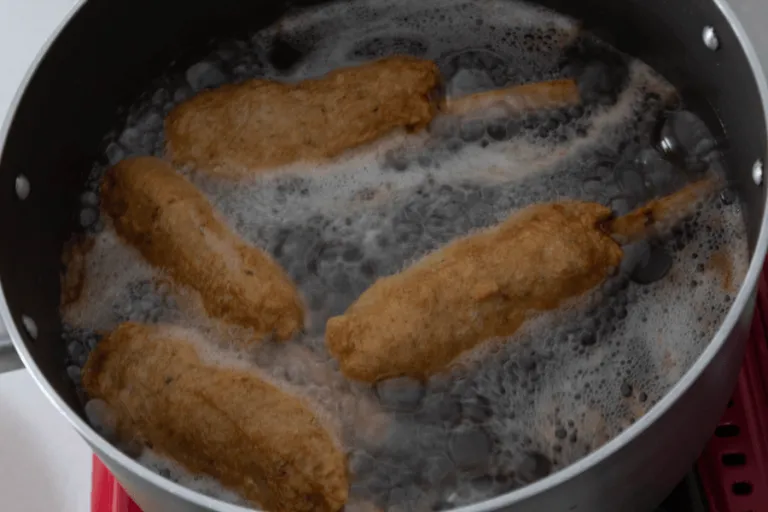 |
Set up a deep frying station and cook the chao tom for 5-10 minutes or until golden brown.
Serve immediately with bánh hỏi (Vietnamese woven rice noodles) and fresh herbs!
TIPS FOR THE BEST RESULTS
- Cook the chao tom just before serving. The longer you let it sit, the more it will begin to shrivel and shrink.
- Don’t overcrowd the frying pot. Deep fry a few at a time so the oil temperature doesn’t dip too low. You want them to be golden as quickly as possible to avoid a dry chao tom!
- Use a pot or pan large enough for the shrimp paste not to touch. This is vital for a consistent brown coating.
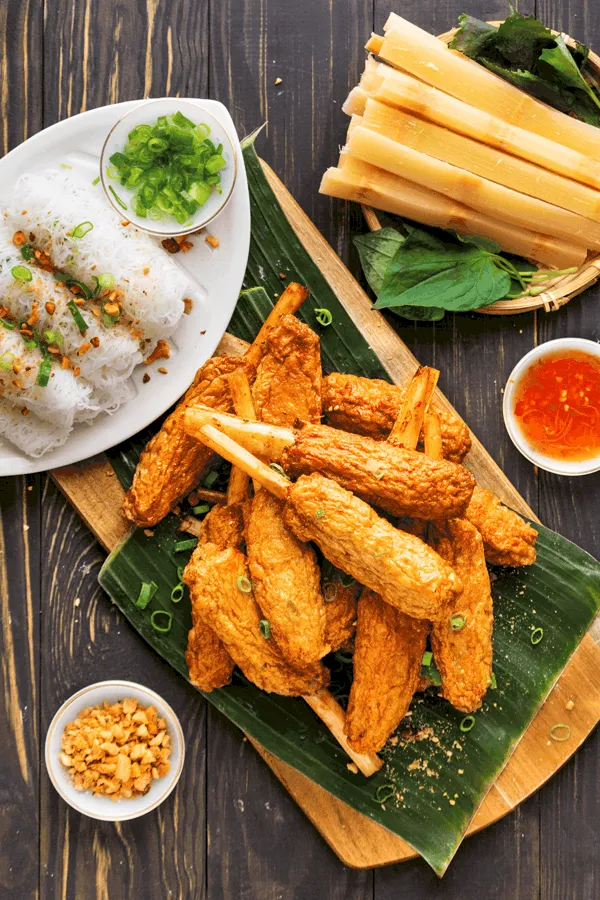 |


